 Petzlover
Petzlover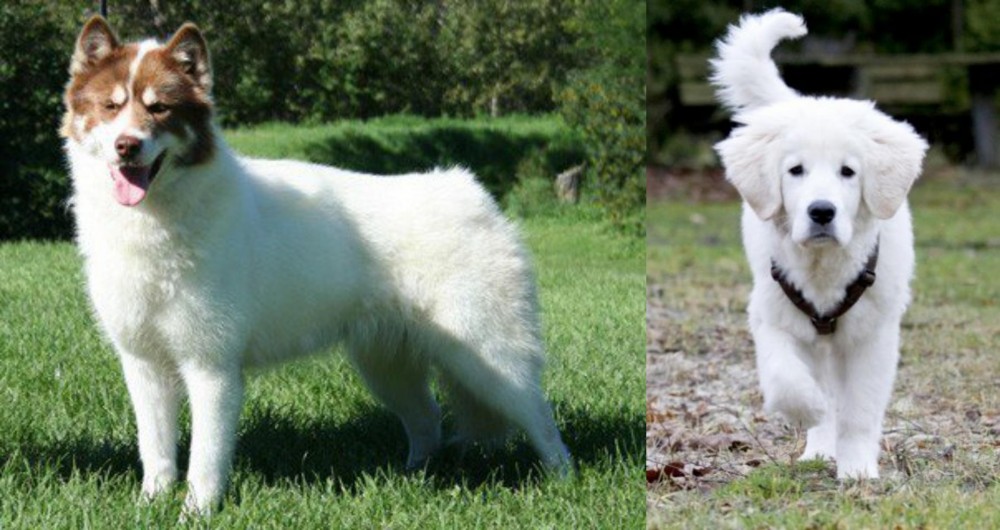 Canadian Eskimo Dog is originated from Canada but Polish Tatra Sheepdog is originated from Poland. Both Canadian Eskimo Dog and Polish Tatra Sheepdog are having almost same height. Canadian Eskimo Dog may weigh 20 kg / 44 pounds lesser than Polish Tatra Sheepdog. Canadian Eskimo Dog may live 3 years more than Polish Tatra Sheepdog. Canadian Eskimo Dog may have more litter size than Polish Tatra Sheepdog. Both Canadian Eskimo Dog and Polish Tatra Sheepdog requires Moderate Maintenance.
Canadian Eskimo Dog is originated from Canada but Polish Tatra Sheepdog is originated from Poland. Both Canadian Eskimo Dog and Polish Tatra Sheepdog are having almost same height. Canadian Eskimo Dog may weigh 20 kg / 44 pounds lesser than Polish Tatra Sheepdog. Canadian Eskimo Dog may live 3 years more than Polish Tatra Sheepdog. Canadian Eskimo Dog may have more litter size than Polish Tatra Sheepdog. Both Canadian Eskimo Dog and Polish Tatra Sheepdog requires Moderate Maintenance.
 The Canadian Eskimo Dog dates way back to more than 4,000 years ago. This Arctic breed of dog was developed to pull sleds, and wasn’t considered as a pet but as a working dog – an important means to an end – a tool for use.
The Canadian Eskimo Dog dates way back to more than 4,000 years ago. This Arctic breed of dog was developed to pull sleds, and wasn’t considered as a pet but as a working dog – an important means to an end – a tool for use.
By the 1960s the dog breed had declined to such an extent that they were removed from UKC and AKC registries. It is believed that the breed would have in all likelihood become extinct if it weren’t for the efforts of Brian Ladoon, William Carpenter and John McGrath who formed the Eskimo Dog Research Foundation in 1972.
After breeding for 30 years, the dog has the biggest genetic stock colony of Canadian Eskimo Dogs and in May 2000, Nunavut, a Canadian territory, adopted the dog as the animal symbol for this region.
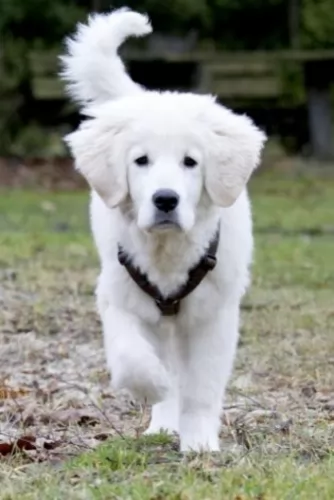 Known also as the Tatra Mountain Sheepdog, Polish Mountain Sheepdog or the Polski Owczarek, the Polish Tatra Sheepdog comes from Poland.
Known also as the Tatra Mountain Sheepdog, Polish Mountain Sheepdog or the Polski Owczarek, the Polish Tatra Sheepdog comes from Poland.
Shepherds were wanting an excellent guard dog for their livestock, and this dog has a natural instinct for guarding. Apart from being a good protection dog, the dog is also a superb companion.
This is a rare dog breed and not recognized by the AKC. This is actually an ancient breed, and the dog has lived in the Polish mountains for thousands of years. When the breed actually came about hasn’t been recorded. Some people suggest the Tatra Sheepdog comes from the Mastiff dog.
After the World Wars the dog’s number had been reduced and the Federation Cynologique Internationale started breeding the dog in the 1960s.
 The Canadian Eskimo Dog is a well-built, medium- to large sized dog looking much like a husky. The male Eskimo dog is somewhat bigger than the female, standing 58 – 70cm at the shoulder and weighing 30 - 40kg.
The Canadian Eskimo Dog is a well-built, medium- to large sized dog looking much like a husky. The male Eskimo dog is somewhat bigger than the female, standing 58 – 70cm at the shoulder and weighing 30 - 40kg.
The male often has some thick fur around the neck, giving him the appearance of looking larger than he actually is. He is slightly larger than the female. Other people say he has a similar appearance to a wolf.
He has a thick double coat which can be white, gray, fawn or even black and white. He has short, erect ears, dark brown eyes and a bushy, feathered tail which curls over the back. Sometimes you find blue eyes with the Canadian Eskimo Dog, and its only when you want to show him, that this isn’t acceptable.
The Canadian Eskimo Dog's temperament is hard working, tough, brave, alert and intelligent. When he is trained and socialized, which will be important for this breed, he becomes gentle and loving, forming a strong bond with his owner. He’ll also get along well with children in the home as well as other pets.
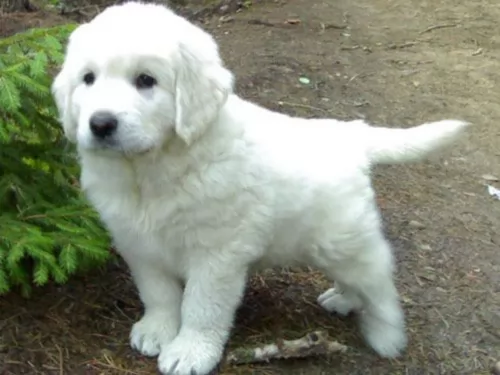 If you bring a Polish Tatra Sheepdog puppy into your home you might think you had a gorgeous Polar Pear Cub roaming around – that’s how cute they are.
If you bring a Polish Tatra Sheepdog puppy into your home you might think you had a gorgeous Polar Pear Cub roaming around – that’s how cute they are.
These are large, well built white coated dogs and the average height for them as an adult is between 60 to 70cm, male and female. Weight of the dog is between 36 and 60kg.
The double coat is medium length and thick. The ears are medium length and floppy and the tail is long and carried low when the dog is at rest, but it is carried up and over the back when the dog is alert and watchful.
These dogs have a lot of characteristics that make it such a good guardian dog. He is territorial, bold, protective, loyal and always loving towards his human family.
The Tatra has a loud bark and he uses this when he is wary of anything that he thinks may harm his family. He is an intelligent dog too, and you won’t have any trouble training and socializing him.
 The Canadian Eskimo Dog is a dog which is responsive to training. With training and socialization, as a highly intelligent, strong-will dog he will need to be supervised by a firm, authoritative figure.
The Canadian Eskimo Dog is a dog which is responsive to training. With training and socialization, as a highly intelligent, strong-will dog he will need to be supervised by a firm, authoritative figure.
He makes such an awesome pet when properly trained, and if you’re a responsible dog owner who knows how to care for- and exercise your pet appropriately, you’ll be rewarded by having a strong, loving companion at your side.
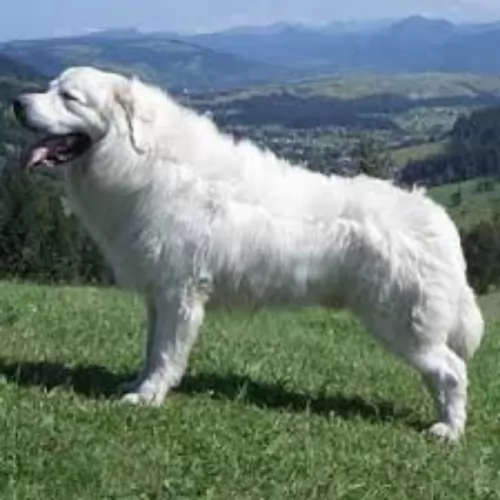 These large sheepdogs have always been guard dogs – they were bred to guard sheep and have always spent a lot of time on their own, away from humans.
These large sheepdogs have always been guard dogs – they were bred to guard sheep and have always spent a lot of time on their own, away from humans.
To many people, he may seem to be somewhat aloof and independent, but for people looking for a guard dog, this particular characteristic is particularly appealing.
Nonetheless, brought up with lots of love and care he makes the most devoted, loving pet.
 The Canadian Eskimo Dog is a generally healthy breed who has a life expectancy of between 10 and 15 years when he is lovingly cared for and provided with a top quality diet. Ensure that he has a top quality diet with plenty of raw meat geared towards his age and energy levels.
The Canadian Eskimo Dog is a generally healthy breed who has a life expectancy of between 10 and 15 years when he is lovingly cared for and provided with a top quality diet. Ensure that he has a top quality diet with plenty of raw meat geared towards his age and energy levels.
The Canadian Eskimo Dog suffers from common health issues that most dogs are at risk for, and typically this will include hip dysplasia and eye disease. If your dog develops a disease such as hip dysplasia, speak to your vet immediately.
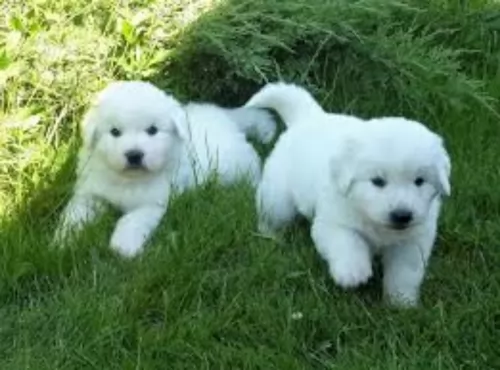 While your Polish Tatra Sheepdog isn’t likely to suffer from any major dog health issues if he is well fed, well exercised and loved, he may well succumb to one or two of some of the typical illnesses there are that plague dogs -
While your Polish Tatra Sheepdog isn’t likely to suffer from any major dog health issues if he is well fed, well exercised and loved, he may well succumb to one or two of some of the typical illnesses there are that plague dogs -
This is such a common- and serious problem with dogs, that it bears mentioning. Hip dysplasia is a problem with the hips so that the bones don’t fit- and move properly. The end result for the dog is pain, inflammation and swelling. Your dog is reluctant to play and get up again after lying down. Arthritis can set in which can also be painful. There are treatments to help with managing pain, but in some instances, surgery may be required.
Because the Polish Tatra Sheepdog is a deep chested dog, he is more prone to bloat, which is life threatening. Gas is trapped in the stomach, the stomach twists and the dog has a swollen stomach, is restless and in stress. Immediate veterinary intervention will be required.
This can be debilitating for your dog as he wants to be licking and scratching the whole time. Usually you’ll see this in the paw- and stomach area. There are a range of medications that the vet will suggest.
 The Canadian Eskimo Dog has always been a working dog, used to being driven hard to perform, and to this day he likes to work hard and have his day filled with activities.
The Canadian Eskimo Dog has always been a working dog, used to being driven hard to perform, and to this day he likes to work hard and have his day filled with activities.
His exercise requirements are high and this is one breed that you’re going to have to exercise regularly – long walks, running on a leash as you cycle, ball games, swimming, hiking. It is why the dog is best suited for life in the country as opposed to small properties in the city. If exercise seems like a lot of hard work for you, don’t buy such a breed as it will be cruel and irresponsible to leave him day after day in your back yard. He becomes bored, frustrated, unhappy and destructive.
The dog is an average shedder and his coat is short and dense. There’s not a whole lot of maintenance to worry about with this good-looking dog and he will basically require having a good brush twice a week.
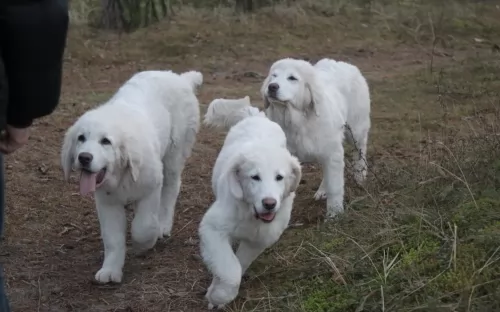 The Polish Tatra Sheepdog is an energetic dog and this means he will require a large sized garden to run around in. As a large, active dog he isn’t recommended for city living but would suit a large property where he can be well exercised. Because of its size and energy levels, regular walks will be recommended. Provide the dog with stimulating games that will be mentally and physically beneficial.
The Polish Tatra Sheepdog is an energetic dog and this means he will require a large sized garden to run around in. As a large, active dog he isn’t recommended for city living but would suit a large property where he can be well exercised. Because of its size and energy levels, regular walks will be recommended. Provide the dog with stimulating games that will be mentally and physically beneficial.
This large dog sheds, and seasonally too, so he will need to be brushed at least twice a week to prevent loose hair.
Check inside your dog’s ears for infection.
Trim your dog’s nails.
Check your dog for fleas and ticks and check him over for any unusual lumps.
Every pet lover wants their dog to live a long, healthy, active life. That is why it is so important to choose the best dog food.
If you buy commercially manufactured dog food, make sure its the high quality ones to ensure its properly formulated to provide your pet with all the vitamins and minerals he needs.
Home-made food is also an excellent choice for your pet. Boiled chicken, brown rice or pasta and spinach, sweet potatoes and carrots can be very healthy, and you can chop this up and add it into the dry kibble a couple of times a week. This is a super tasty treat. Some raw meat added in occasionally will do him the world of good.
Never leave your pet without a constant source of fresh, cool water.